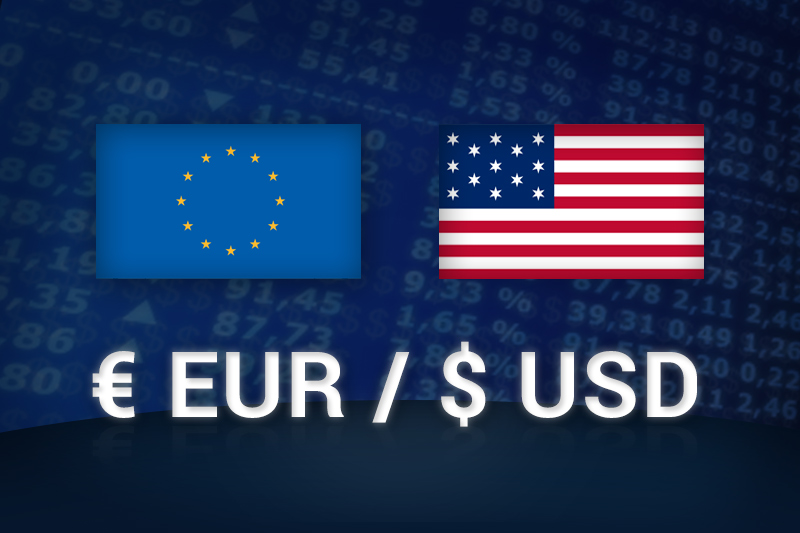Investing.com - The euro strengthened against the dollar on Friday after Germany approved a deal that will free up EUR44 billion in aid for Greece.
In U.S. trading on Friday, EUR/USD was trading up 0.17% at 1.3001, up from a session low of 1.2969, and off from a high of 1.3028.
The pair was likely to find support at 1.2969, the earlier low, and resistance at 1.3028, the earlier high.
E.U. and I.M.F. officials agreed on a proposal for Greece to cut its debt to 124% of gross domestic product by 2020 in exchange for fresh aid payments.
Germany's parliament on Friday gave the accord the green light, which will free up EUR44 billion to flow into the country's coffers in installments and avoid default for now.
The pair also found bullish steering currents on European Central Bank President Mario Draghi's comments that the eurozone economy should begin recovering in the second half of 2013,
Soft German sales data capped the single currency's gains against the U.S. currency.
Government data revealed that German retail sales contracted 2.8% in October from September, outpacing market calls for a 0.2% decline and falling well short of a 0.5% rise in September.
Elsewhere in Europe, the eurozone consumer price index fell more than expected in November, coming in at an annualize rate of 2.2% from 2.5% in October.
Analysts had expected a 2.4% reading in November.
Meanwhile, the unemployment rate for eurozone rose to a record high 11.7% in October from 11.6% the previous month, in line with expectations.
The dollar, meanwhile, saw some safe-haven demand in wake of disappointing output data in the U.S.
The Chicago purchasing managers' index hit 50.4 in November, up from 49.9 the previous month but short of market calls for a gain to 50.5.
Separately, government data revealed that U.S. personal spending decreased unexpectedly in October, ticking down 0.2% after a 0.8% rise the previous month.
Analysts had expected personal spending to rise 0.2% in October.
U.S. personal income was flat last month, disappointing expectations for a 0.2% gain following a 0.4% increase in September.
Ongoing concerns surrounding the U.S. fiscal cliff, a USD600 billion one-two punch of deep federal spending cuts and tax hikes taking effect at the same time in January, kept some investors camped out in the dollar as well.
The euro, meanwhile, was up against the pound and up against the yen, with EUR/GBP trading up 0.26% at 0.8113, and EUR/JPY trading up 0.65% at 107.27.
In U.S. trading on Friday, EUR/USD was trading up 0.17% at 1.3001, up from a session low of 1.2969, and off from a high of 1.3028.
The pair was likely to find support at 1.2969, the earlier low, and resistance at 1.3028, the earlier high.
E.U. and I.M.F. officials agreed on a proposal for Greece to cut its debt to 124% of gross domestic product by 2020 in exchange for fresh aid payments.
Germany's parliament on Friday gave the accord the green light, which will free up EUR44 billion to flow into the country's coffers in installments and avoid default for now.
The pair also found bullish steering currents on European Central Bank President Mario Draghi's comments that the eurozone economy should begin recovering in the second half of 2013,
Soft German sales data capped the single currency's gains against the U.S. currency.
Government data revealed that German retail sales contracted 2.8% in October from September, outpacing market calls for a 0.2% decline and falling well short of a 0.5% rise in September.
Elsewhere in Europe, the eurozone consumer price index fell more than expected in November, coming in at an annualize rate of 2.2% from 2.5% in October.
Analysts had expected a 2.4% reading in November.
Meanwhile, the unemployment rate for eurozone rose to a record high 11.7% in October from 11.6% the previous month, in line with expectations.
The dollar, meanwhile, saw some safe-haven demand in wake of disappointing output data in the U.S.
The Chicago purchasing managers' index hit 50.4 in November, up from 49.9 the previous month but short of market calls for a gain to 50.5.
Separately, government data revealed that U.S. personal spending decreased unexpectedly in October, ticking down 0.2% after a 0.8% rise the previous month.
Analysts had expected personal spending to rise 0.2% in October.
U.S. personal income was flat last month, disappointing expectations for a 0.2% gain following a 0.4% increase in September.
Ongoing concerns surrounding the U.S. fiscal cliff, a USD600 billion one-two punch of deep federal spending cuts and tax hikes taking effect at the same time in January, kept some investors camped out in the dollar as well.
The euro, meanwhile, was up against the pound and up against the yen, with EUR/GBP trading up 0.26% at 0.8113, and EUR/JPY trading up 0.65% at 107.27.
